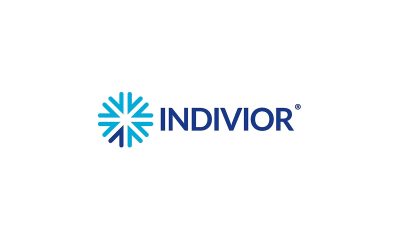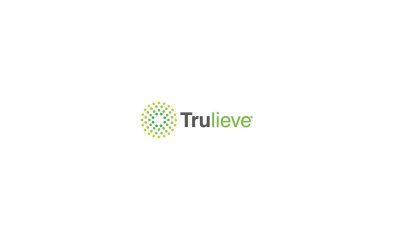Nation’s Largest Nurse’s Union Calls for Ouster of Wayne T. Smith, CEO of Community Health Systems
New report tracks CHS’ pattern of eroding patient care conditions,
price gouging, and corporate mismanagement
OAKLAND, Calif.–(BUSINESS WIRE)–National Nurses United, the nation’s largest union of registered nurses,
calls for the ouster of Wayne T. Smith as CEO of Community Health
Systems (CHS), in a new
report titled, Other People’s Money: How CEO Wayne Smith
gambled away the future of CHS at the expense of patients, investors,
and communities.
Release of the new report, which chronicles Smith’s mismanagement of
CHS, coincides with the corporation’s annual stockholder meeting to be
held May 14 in Franklin, Tennessee.
“Based on a review of Smith’s tenure as CEO, it appears that his primary
goal has been to enrich himself at the expense of patients, and the
corporation’s assets,” said National Nurses United President Zenei
Cortez, RN. “The CHS board must put an end to Smith’s flagrant
mismanagement. Rather than squander money on bloated bonuses the board
must direct new leadership to reinvest in the hospitals that CHS has let
fall into terrible disrepair.”
At the upcoming stockholder meeting the CHS board has proposed a
resolution to reward Smith with a compensation package quadrupling last
year’s bonus pay, despite massive losses to shareholders and untold
hardship in the communities exploited by CHS. In the report, nurses
express strong opposition to the CHS board resolution to reward Smith’s
appalling mismanagement stating that, “approving the proposal would be
an astonishing endorsement of a corporate leader working only for
himself.”
The new report describes CHS’ strategy, under CEO Smith, of operating as
a sole provider in small, non-urban markets, where lack of competition
enabled their charging some of the highest healthcare prices in the
industry while investing as little as possible in infrastructure,
staffing and supplies. The strategy also included dropping critical
services altogether if found unprofitable. From 2002 to 2015, CHS
reduced or eliminated emergency rooms, trauma centers, obstetric
services, labor and delivery services, pediatrics units, psychiatric
units, and medical detox units at hospitals throughout the country. Due
to CHS’ rural model, many of these services were the only ones available
for miles, placing particular hardship on non-urban residents.
The report also documents:
-
In addition to service reductions, CHS has been a national leader in
hospital closures. Many of these hospitals are in non-urban locales
where the economic impact of losing a hospital—often the largest
source of professional employment in these locations—can be felt
throughout a community for years. -
CHS closed four hospitals between 2014 and 2018 in Tennessee, the
state that has in the past decade, lost the most hospitals per capita
in the nation. At least two of these hospitals were closed in areas
federally designated as “Medically Underserved Areas,” and all
provided highly utilized emergency, surgical, and other specialty
services. -
During CHS’ highest performing years, prices charged at its hospitals
ranked among the highest in the nation. Today, CHS holds the #2 spot,
owning 15 of the nation’s 50 most expensive hospitals, that is,
hospitals that charge the most in relationship to actual cost of
services. -
Factors leading to CHS’ financial downturn, including Smith’s decision
to take on $9 billion of debt to acquire Triad Hospitals in 2007,
followed by the 2014 acquisition of HMA, increasing its already-huge
debt to $14 billion, a billion more than its 2013 net operating
revenues. -
The CHS board consistently rewarding CEO Smith with excessive
compensation despite the company’s poor performance. In March 2019,
while reeling from CHS’ $788 million loss the previous year, which
ended with share values near their all-time low, $2.80, shareholders
learned that Smith would be awarded a 42% raise for his performance in
2018, for a total of $7 million.
To view the full report visit: Other
People’s Money: How CEO Wayne Smith gambled away the future of
CHS at the expense of patients, investors, and communities.
“As a nurse I can attest first-hand to the devastating consequences CHS’
acquisition has had on our community hospital,” said Brenda Meadwell,
RN, Bluefield Regional Medical Center (BRMC), Bluefield, West Virginia.
“Bluefield city officials moved forward with the sale believing CHS’
promises to invest in needed improvements and retain all staff, but
after taking control they immediately cut staff and closed certified
beds. Today the permanent staff is half what it was at the time of
purchase, short staffing is chronic, and there is an ongoing lack of
adequate supplies.”
“I will be attending the annual shareholder meeting, both as a
shareholder and a nurse at a CHS-affiliated hospital, to make sure that
other shareholders and the board understand what is happening at the
hospitals they are responsible for,” said Meadwell. “It is wrong to
reward CEO Smith with a lavish compensation package, as the value of CHS
stocks plummet alongside the plummeting quality of patient care at the
chain’s hospitals.”
Registered nurses at Bluefield Regional Medical Center in West Virginia,
and several other hospitals affiliated with Community Health Systems
(CHS), voted to affiliate with National Nurses Organizing
Committee/National Nurses United (NNOC/NNU) in 2012, in response to
management’s continued failure to improve patient care conditions. CHS
engaged in rampant and serious unfair labor practices in an attempt to
weaken support for the union and forestall reaching initial collective
bargaining agreements. The NLRB has upheld numerous unfair labor
practice charges filed against the hospitals by NNOC/NNU and three US
District Courts issued injunctions in response to the employer’s
unlawful conduct early in contract negotiations with RNs.
National Nurses United is the largest and fastest growing union of
RNs in the nation. NNU has won landmark health and safety protections
for nurses and patients in the areas of staffing, safe patient handling,
infectious disease and workplace violence protection.
Contacts
Martha Wallner, 510-273-2264

Indivior
Indivior Provides Update on Aelis Farma’s Clinical Phase 2B Study Results with AEF0117 in Participants with Cannabis Use Disorder
THIS ANNOUNCEMENT CONTAINS INSIDE INFORMATION FOR THE PURPOSES OF ARTICLE 7 OF THE MARKET ABUSE REGULATION (EU) 596/2014 (AS IT FORMS PART OF DOMESTIC LAW IN THE UK BY VIRTUE OF THE EUROPEAN UNION (WITHDRAWAL) ACT 2018).
- Primary and Secondary End Points of the Study were Not Met
- Indivior Does Not Currently Expect to Exercise AEF0117 Option
SLOUGH, United Kingdom and RICHMOND, Va., Sept. 4, 2024 /PRNewswire/ — Indivior PLC (Nasdaq/LSE: INDV) is today providing an update following Aelis Farma’s announcement of the results from its clinical Phase 2B trial with AEF01171, evaluating the efficacy and safety in treatment-seeking participants with moderate to severe Cannabis Use Disorder (CUD). The purpose of this trial was twofold: (1) to show that AEF0117 (0.1, 0.3, 1 mg once a day for 12 weeks) lowers cannabis use and (2) to determine the endpoints and optimal dosage of AEF0117 for use in future studies. In this phase 2B study, patients were treatment-seeking participants, 84% of whom had severe CUD.
The results of the study demonstrated that the primary endpoint, the proportion of participants who reduced their cannabis use to ≤1 day per week, as well as secondary endpoints measuring the proportion of participants reaching either complete abstinence or who used ≤2 day per week, were not met. Although these results are disappointing, they indicate that significant work remains to be done to understand subpopulations of patients with CUD, specifically those with severe CUD.
This clinical Phase 2B study is part of the strategic collaboration between Aelis Farma and Indivior, which includes an exclusive option for Indivior to license the global rights to AEF0117. Given the lack of separation from placebo on primary and secondary endpoints and before seeing further additional favorable clinical data, Indivior does not currently expect to exercise its option.
Important Cautionary Note Regarding Forward-Looking Statements
This news release contains certain statements that are forward-looking. Forward-looking statements include, among other things, express and implied statements regarding whether: we will be able to ultimately demonstrate the safety and efficacy of AEF0117, which is a prerequisite to filing any New Drug Application; we might ever exercise our option for AEF0117 and, if so, when; and other statements containing the words “believe,” “anticipate,” “plan,” “expect,” “intend,” “estimate,” “forecast,” “strategy,” “target,” “guidance,” “outlook,” “potential,” “project,” “priority,” “may,” “will,” “should,” “would,” “could,” “can,” “outlook,” “guidance,” the negatives thereof, and variations thereon and similar expressions. By their nature, forward-looking statements involve risks and uncertainties as they relate to events or circumstances that may or may not occur in the future.
Actual results may differ materially from those because they relate to future events. Various factors may cause differences between Indivior’s expectations and actual results, including, among others, the risks described in our most recent annual report on Form 20-F beginning on page 9 as filed with the U.S. SEC and in subsequent releases; legal and market restrictions that may limit how quickly we can repurchaser our shares; the substantial litigation and ongoing investigations to which we are or may become a party; our reliance on third parties to manufacture commercial supplies of most of our products, conduct our clinical trials and at times to collaborate on products in our pipeline; our ability to comply with legal and regulatory settlements, healthcare laws and regulations, requirements imposed by regulatory agencies and payment and reporting obligations under government pricing programs; risks related to the manufacture and distribution of our products, most of which contain controlled substances; market acceptance of our products as well as our ability to commercialize our products and compete with other market participants; competition; the uncertainties related to the development of new products, including through acquisitions, and the related regulatory approval process; our dependence on third-party payors for the reimbursement of our products and the increasing focus on pricing and competition in our industry; unintended side effects caused by the clinical study or commercial use of our products; our ability to successfully execute acquisitions, partnerships, joint ventures, dispositions or other strategic acquisitions; our ability to protect our intellectual property rights and the substantial cost of litigation or other proceedings related to intellectual property rights; the risks related to product liability claims or product recalls; the significant amount of laws and regulations that we are subject to, including due to the international nature of our business; macroeconomic trends and other global developments such as armed conflicts and pandemics; the terms of our debt instruments, changes in our credit ratings and our ability to service our indebtedness and other obligations as they come due; changes in applicable tax rate or tax rules, regulations or interpretations and our ability to realize our deferred tax assets; and volatility in our share price due to factors unrelated to our operating performance or that may result from the potential move of our primary listing to the U.S.
Forward-looking statements speak only as of the date that they are made and should be regarded solely as our current plans, estimates and beliefs. Except as required by law, we do not undertake and specifically decline any obligation to update, republish or revise forward-looking statements to reflect future events or circumstances or to reflect the occurrences of unanticipated events.
This release is being made by Kathryn Hudson, Company Secretary Indivior PLC.
About Indivior
Indivior is a global pharmaceutical company working to help change patients’ lives by developing medicines to treat substance use disorders (SUD), overdose and serious mental illnesses. Our vision is that all patients around the world will have access to evidence-based treatment for the chronic conditions and co-occurring disorders of SUD. Indivior is dedicated to transforming SUD from a global human crisis to a recognized and treated chronic disease.
Building on its global portfolio of OUD treatments, Indivior has a pipeline of product candidates designed to both expand on its heritage in this category and potentially address other chronic conditions and co-occurring disorders of SUD. Headquartered in the United States in Richmond, VA, Indivior employs over 1,000 individuals globally and its portfolio of products is available in over 30 countries worldwide. Visit www.indivior.com to learn more. Connect with Indivior on LinkedIn by visiting www.linkedin.com/company/indivior.
References:
- National Library of Medicine (U.S.) (2022, April). Effect of AEF0117 on treatment-seeking patients with cannabis use disorder (CUD) (SICA2). Identifier
NCT05322941 https://www.clinicaltrials.gov/study/NCT05322941
Logo – https://mma.prnewswire.com/media/1814851/Indivior_Logo.jpg
![]() View original content:https://www.prnewswire.co.uk/news-releases/indivior-provides-update-on-aelis-farmas-clinical-phase-2b-study-results-with-aef0117-in-participants-with-cannabis-use-disorder-302237355.html
View original content:https://www.prnewswire.co.uk/news-releases/indivior-provides-update-on-aelis-farmas-clinical-phase-2b-study-results-with-aef0117-in-participants-with-cannabis-use-disorder-302237355.html

Innocan
Innocan Pharma Announces Closing of Private Placement and Grant of Stock Options

HERZLIYA, Israel and CALGARY, Alberta, Aug. 29, 2024 /PRNewswire/ — Innocan Pharma Corporation (CSE: INNO) (FSE: IP4) (OTCQB: INNPF) (“Innocan” or the “Company”), a pioneer in the pharmaceutical and biotechnology industries, is pleased to announce that it has completed its previously announced non-brokered private placement offering of 5,025,725 units of the Company (the “Units”) at a price of C$0.22 per Unit for gross proceeds of C$1,105,659.50 (the “Offering”).
Each Unit is comprised of: (i) one (1) common share in the capital of the Company (each a “Common Share”); and (ii) one (1) common share purchase warrant (each a “Warrant”). Each Warrant will entitle the holder thereof to purchase one Common Share at a price of C$0.32 for a period of four (4) years from the date of issuance.
Innocan intends to use the proceeds of the Offering for working capital and general corporate purposes.
The securities issued to Canadian subscribers in connection with the Offering are subject to a hold period of four months and one day from the date of issuance, in accordance with applicable Canadian securities laws.
Iris Bincovich, Chief Executive Officer of the Company, stated “we are very pleased with our successful offering. I would like to extend my sincere gratitude to our investors for their unwavering support. We see this as a strong vote of confidence by both existing and new investors which demonstrates investor support of our vision and strategic direction. These new funds will provide us with additional working capital to enable us to capitalize on new opportunities and allow us to advance strongly on our growth plans.”
The Company is also pleased to announce that it has granted an aggregate of 300,000 stock options (each an “Option“) to certain consultants of the Company pursuant to the Company’s stock option plan (the “Plan“). Each Option may be exercised for one (1) common share in the capital of the Company (each, a “Share“) at a price of $0.25 per Share. The Options expire on August 27, 2029.
All Options granted vest in accordance with the following vesting schedule: (i) 1/3rd of the Options vested immediately at grant; (ii) 1/3rd of the Options will vest on February 28, 2025; and (iii) 1/3rd will vest on August 27, 2025; all subject to the terms and conditions of the Plan.
About Innocan Pharma:
Innocan is a pharmaceutical tech company that operates under two main segments: Pharmaceuticals and Consumer Wellness. In the Pharmaceuticals segment, Innocan focuses on developing innovative drug delivery platform technologies comprises with cannabinoids science, to treat various conditions to improve patients’ quality of life. This segment involves two drug delivery technologies: (i) LPT CBD-loaded liposome platform facilitating exact dosing and the prolonged and controlled release of CBD into the blood stream. The LPT delivery platform research is in the preclinical trial phase for two indications: Epilepsy and Pain Management. In the Consumer Wellness segment, Innocan develops and markets a wide portfolio of innovative and high-performance self-care products to promote a healthier lifestyle. Under this segment Innocan has established a Joint Venture by the name of BI Sky Global Ltd. that focuses developing on advanced targeted online sales. https://innocanpharma.com/
Contact Information:
For Innocan Pharma Corporation:
Iris Bincovich, CEO
+1 5162104025
+972-54-3012842
+442037699377
[email protected]
NEITHER THE CANADIAN SECURITIES EXCHANGE NOR ITS REGULATION SERVICES PROVIDER HAVE REVIEWED OR ACCEPT RESPONSIBILITY FOR THE ADEQUACY OR ACCURACY OF THIS RELEASE.
Logo – https://mma.prnewswire.com/media/2046271/4883982/Innocan_Pharma_Corporation_Logo.jpg
![]() View original content:https://www.prnewswire.co.uk/news-releases/innocan-pharma-announces-closing-of-private-placement-and-grant-of-stock-options-302234455.html
View original content:https://www.prnewswire.co.uk/news-releases/innocan-pharma-announces-closing-of-private-placement-and-grant-of-stock-options-302234455.html

Cannabis
Europe Medical Cannabis Market Forecast 2024-2032: Tilray, Aurora Cannabis, and GW Pharmaceuticals Dominate the Market Landscape
Dublin, Aug. 29, 2024 (GLOBE NEWSWIRE) — The “Europe Medical Cannabis Oil Market Size, Industry Dynamics, Opportunity Analysis and Forecast 2024-2032.” report has been added to ResearchAndMarkets.com’s offering.
The Europe Medical Cannabis Oil market is poised for significant growth, projected to escalate from US$ 0.91 billion in 2023 to US$ 2.40 billion by 2032, advancing at a CAGR of 12.08%. In this comprehensive research report, the market is analyzed by:
- Derivatives;
- Source;
- Application;
- Route of Administration;
- End-user;
- Distribution Channel; and
- Country.
Market Highlights Identified in the Report
- Progressive legalization across Europe is creating a favorable regulatory environment, enhancing market expansion for medical cannabis oil products.
- Germany leads the market with a robust infrastructure and supportive regulations, while other countries like the UK, Italy, and Spain show significant growth potential based on evolving regulatory landscapes and market dynamics.
- Key players such as Tilray, Aurora Cannabis Inc., and GW Pharmaceuticals dominate the market, emphasizing research, strategic partnerships, and innovation to maintain competitive edge amidst evolving industry dynamics.
The medical cannabis oil market has experienced substantial growth as legalization and acceptance of cannabis-based treatments expand globally. Cannabis oil, derived from the cannabis plant through extraction methods, contains cannabinoids such as THC and CBD, known for their therapeutic properties. Increasing recognition of cannabis oil’s potential in alleviating symptoms of various medical conditions, including chronic pain, epilepsy, and anxiety disorders, has driven its adoption in medical settings.
Governments in several countries are progressively legalizing medical cannabis, creating a conducive regulatory environment for market expansion. Additionally, growing consumer awareness about alternative and natural therapies has fueled the demand for cannabis oil products. The market is characterized by diverse product offerings, including full-spectrum and CBD-isolate oils, catering to different therapeutic needs and preferences.
Despite regulatory challenges and stigma associated with cannabis, the medical cannabis oil market continues to evolve, driven by ongoing research, favorable legislative changes, and shifting attitudes toward cannabis-based therapies in healthcare.
Regional Insights
Germany is likely to maintain its leadership position in the European medical cannabis oil market due to its established infrastructure, supportive regulations, and strong healthcare system. Germany legalized medical cannabis in 2017, giving the market a head start compared to many other European countries. This established infrastructure and experience position Germany as a leader in the field. As awareness and acceptance of medical cannabis increase, the number of patients seeking treatment in Germany is steadily rising. This fuels market growth and incentivizes further investment in research and development.
Germany’s regulatory framework for medical cannabis is considered relatively patient-friendly compared to some other European countries. This facilitates access for patients with qualifying conditions. The UK legalized medical cannabis in 2018 and is experiencing an increase in patient access programs. This, coupled with ongoing research, could lead to significant market growth. Italy legalized medical cannabis in 2006 but has faced challenges with availability. As regulations become more streamlined and patient access expands, the Italian market holds significant growth potential. Spain has a well-established medical cannabis industry with a focus on domestic production. As regulations evolve and export opportunities increase, the Spanish market could see a boost.
Competitive Landscape
The Medical Cannabis Oil market is characterized by a vigorous competitive landscape, with prominent entities like Tilray, Aurora Cannabis Inc., GW Pharmaceuticals, Almiral, Bedrocan, and others at the forefront, collectively accounting for approximately 41 % of the overall market share. This competitive milieu is fueled by their intensive efforts in research and development as well as strategic partnerships and collaborations, underscoring their commitment to solidifying market presence and diversifying their offerings.
The primary competitive factors include pricing, product caliber, and technological innovation. As the Medical Cannabis Oil industry continues to expand, the competitive fervor among these key players is anticipated to intensify. The impetus for ongoing innovation and alignment with evolving customer preferences and stringent regulations is high. The industry’s fluidity anticipates an uptick in novel innovations and strategic growth tactics from these leading corporations, which in turn propels the sector’s comprehensive growth and transformation.
Key Topics Covered
Chapter 1. Research Framework
Chapter 2. Research Methodology
Chapter 3. Executive Summary: Europe Medical Cannabis Oil Market
Chapter 4. Europe Medical Cannabis Oil Market Overview
Chapter 5. Europe Medical Cannabis Oil Market Analysis, by Derivatives
Chapter 6. Europe Medical Cannabis Oil Market Analysis, by Source
Chapter 7. Europe Medical Cannabis Oil Market Analysis, by Application
Chapter 8. Europe Medical Cannabis Oil Market Analysis, by Route of Administration
Chapter 9. Europe Medical Cannabis Oil Market Analysis, by End-user
Chapter 10. Europe Medical Cannabis Oil Market Analysis, by Distribution Channel
Chapter 11. Europe Medical Cannabis Oil Market Analysis, by Country
Chapter 12. The UK Medical Cannabis Oil Market Analysis
Chapter 13. Germany Medical Cannabis Oil Market Analysis
Chapter 14. The Netherlands Medical Cannabis Oil Market Analysis
Chapter 15. Italy Medical Cannabis Oil Market Analysis
Chapter 16. Spain Medical Cannabis Oil Market Analysis
Chapter 17. Poland Medical Cannabis Oil Market Analysis
Chapter 18. Rest of Europe Medical Cannabis Oil Market Analysis
Chapter 19. Company Profiles (Company Overview, Financial Matrix, Key Product Landscape, Key Personnel, Key Competitors, Contact Address, and Business Strategy Outlook)
A selection of companies mentioned in this report includes, but is not limited to:
- Aurora Cannabis Inc.
- Bedrocan
- Biocann
- BIOTA Biosciences LLC
- Cannamedical
- Mary Jane CBD
- Sanity Group GmbH
- Tilray
- Valcon Medical
For more information about this report visit https://www.researchandmarkets.com/r/dh7q46
About ResearchAndMarkets.com
ResearchAndMarkets.com is the world’s leading source for international market research reports and market data. We provide you with the latest data on international and regional markets, key industries, the top companies, new products and the latest trends.

-

 Cannabis2 weeks ago
Cannabis2 weeks agoSilly Nice Announces Launch of New 1G 510 Vape Cartridge and 2G All-In-One Vape in New York Dispensaries This September
-

 Cannabis1 week ago
Cannabis1 week agoEurope Medical Cannabis Market Forecast 2024-2032: Tilray, Aurora Cannabis, and GW Pharmaceuticals Dominate the Market Landscape
-

 Cannabis2 weeks ago
Cannabis2 weeks agoCannabis Cultivation Market – Global Food Additives, Oils, Tinctures, Cannabis Indica, Cannabis Sativa Forecast 2024-2030
-

 Cannabis2 weeks ago
Cannabis2 weeks agoGlobal Hemp Based Food Market Size To Worth USD 4.87 Billion By 2033 | CAGR Of 13.12%
-

 Innocan1 week ago
Innocan1 week agoInnocan Pharma Announces Closing of Private Placement and Grant of Stock Options
-
Indivior4 days ago
Indivior Provides Update on Aelis Farma’s Clinical Phase 2B Study Results with AEF0117 in Participants with Cannabis Use Disorder



















